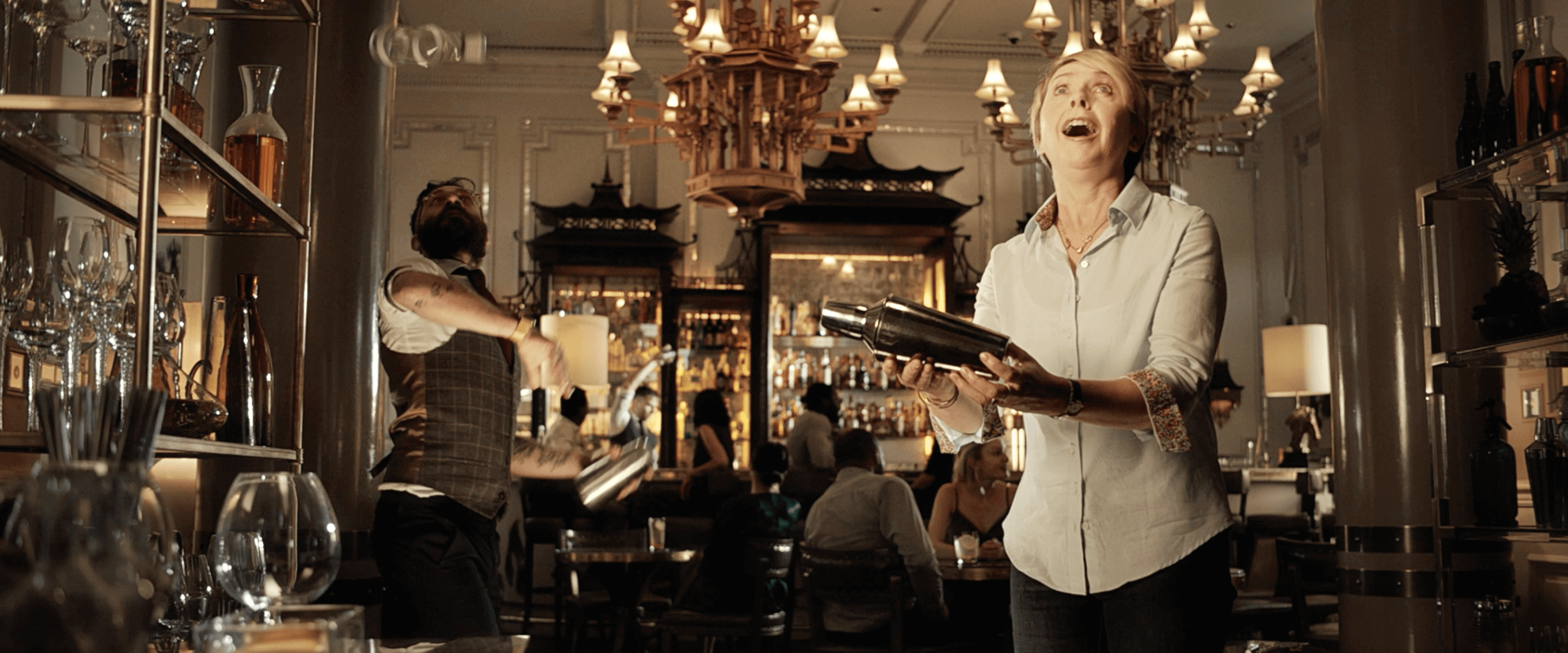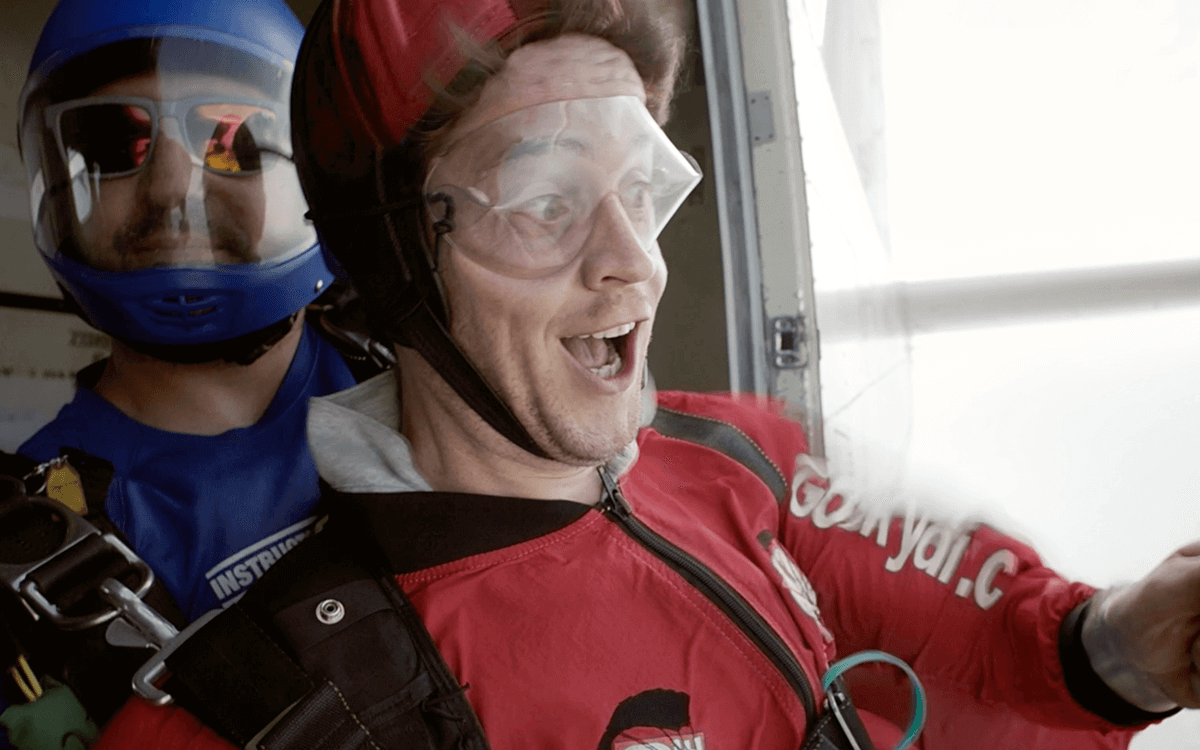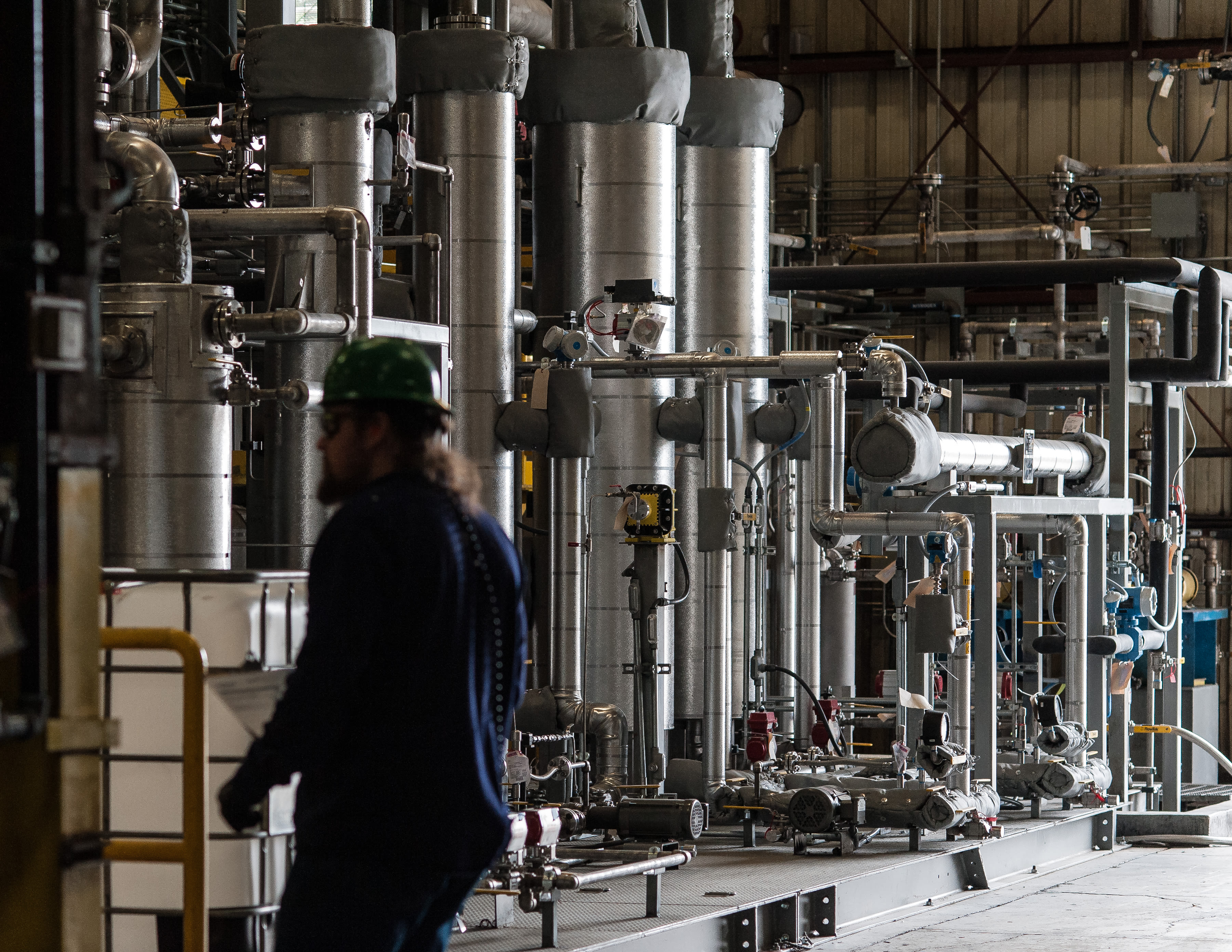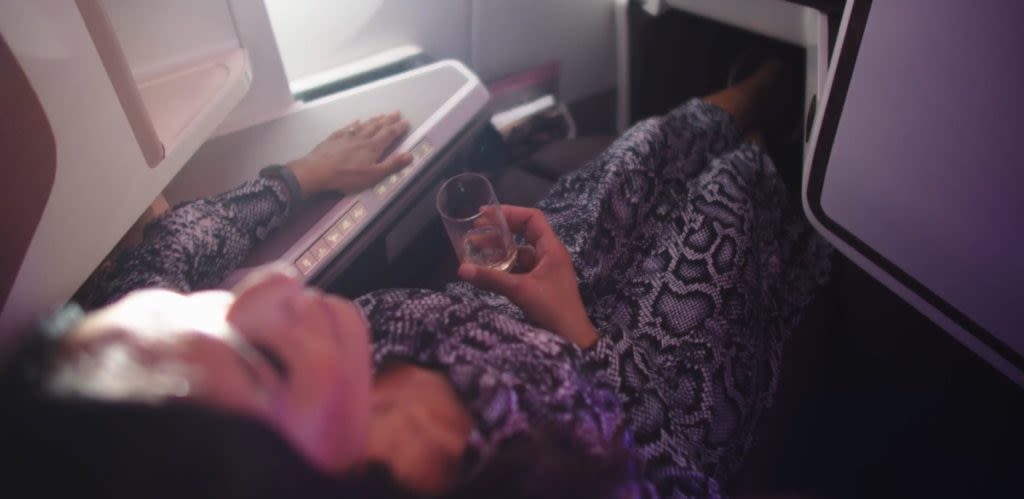How to cope with fear when innovating new ideas, and facing the Great Unknown
This content is part of Virgin.com’s Groundbreaker series, celebrating the creators and innovators at the forefront of radical change. From the champions of trailblazing greentech to new-gen space engineers, these are the bold new thinkers determined to make the world a better, greener and fairer place. Join us for a closer look at the beating entrepreneurial heart of Virgin and its partner companies – where risk-taking reigns supreme.
From Virgin Orbit’s High-G training to the first passenger test of Virgin Hyperloop, members of the Virgin family have always been aware that to innovate, you have to face the unknown – and within that equation comes an element of fear.
At its best, this form of boundary-pushing fear can motivate and uplift – but it can also have a “rabbit in the headlights” effect. The key is knowing how to make the difference, so that you can move forward and embrace all the new ideas and opportunities that innovation brings.
One person who’s on first-name terms with innovation is Gareth Weston, Partnership Manager at Virgin Experience Days. Gareth’s career is all about encouraging people to stretch their limits via the cocktail of unique and thrilling experiences that he and his team constantly strive to create.
“100% we are always on the lookout for the new and unusual,” he says. “With new technology, and a renewed appetite to try new things after lockdown, we’re working hard to keep delivering super-exciting and unique experiences. Innovation for us is about helping people break free from the everyday. Sometimes it takes something extreme like jumping out of a plane, or being chased by zombies, to really achieve this.”
Captain Ian ‘Spiney’ Norman FRAeS, a former Squadron Leader and one of Virgin Atlantic’s longest-serving Airbus captains, is also very familiar with our relationship to innovation, and the fear that comes with it. In his past career with the RAF, Spiney spent many years training other military pilots, and helping them to face their fears by exploring new frontiers. Now he heads up Virgin Atlantic’s Human Factors programme, which deals with all the non-technical areas of teamwork.
These skills, including communication and problem solving, are constantly challenging the scope of what people can achieve when they work well together in all kinds of environments (Spiney’s job involves advising organisations such as the NHS and the RNLI, as well as teams at Virgin Atlantic).
“My Human Factors training has taught me not to get swamped in the whole fear of everything,” he says. “You can't change the fear of coming up against hurdles in life. It's like pushing against a river. Instead you have to learn how to work with the current.”
Below, Gareth and Spiney share their tips for coming face-to-face with the Great Unknown – and leaning into fear that comes with constantly innovating and trying new things.
Fear is a natural reaction that everyone faces
Fear is a completely natural reaction that everyone has in all kinds of situations. As such, you’ll never get rid of it; but you *can* learn how to manage it so that it doesn’t become this huge, overwhelming emotion.
Part of this mindset is knowing how to move from that instant fight-or-flight response to engaging the logical side of your brain.
“We pilots have a saying if something unexpected happens: ‘sit on your hands,” Spiney explains. “It’s not literal; it’s about taking a pause. You need to have resilience to the startle factor. Whether you’re experiencing a sudden change in weather or an engine fire, first you’ve got to stop and think, rather than just reacting blindly in the moment.”
The pause allows the mind to move from the “hijack” emotional response of fear to something more rational, making room for the frontal part of your brain – involving processes such as problem solving and impulse control – to operate. “When unexpected things occur, stress and fear are going to happen,” says Spiney.
“Some of this is useful, too, because it puts you into an arousal state where you’re primed to respond quickly. But if that fear takes hold too much, it can shut you down.”
In Gareth’s world of Virgin Experience Days, the moment of truth typically arrives as customers “talk themselves through fear” before a scary experience; for example, before taking the plunge with a 12,000ft tandem skydive.
“There’s something fundamentally terrifying about a skydive, and I think it’s going to have to be a pretty spectacular experience to dethrone it,” he says. “It’s always a great story when customers talk through their nerves beforehand; all the way through to the life-affirming sense of achievement having touched down.”
To manage fear better, break it down
Facing down fear also involves dividing it up into bite-sized chunks so that it becomes more manageable. This habit is second-nature in the aviation industry, where junior officers will have been through years of flight training and simulator experience before flying in an aircraft with passengers. This step-by-step training means they can slowly but surely build up their skills, learning to cope calmly in almost any situation imaginable.
It’s a strategy that can be adopted in almost any “scary” area of life, from taking a driving test to completing a dissertation. “The secret to fear is to compartmentalize it,” says Spiney. “You can't avoid fear, but understanding why you have them is key to mastering them. It’s about breaking down the fear, asking: ‘why is it that I feel this?’ And then building whatever skills you need to take charge.”
Since everyone understands the impact of fear, our fellow humans are also a great resource when it comes to tackling fear, and breaking it into manageable pieces. “The teams behind our ‘scarier’ experiences are masters at helping you through, gently coaxing out your boldest self,” says Gareth. “An indoor skydive is a great first step for those tempted by the real thing, for example.”
Fear helps you grow, and develop resilience
Above all, the ability to stare down your fears comes with the potential of huge personal growth and ability to innovate. “Say a pilot is facing really bad weather and has to do an auto-land for the first time,” says Spiney. “They’ve done it in the simulator hundreds of times, they’ve trained for it. And that training has given them the resilience they need to feel confident.
“That’s the secret in life full stop,” he goes on. “You’re banking resilience all the time. And the way to do that is by training and exploring; knowing you could be fearful at any moment – but also knowing you can master that fear.”
Ultimately, then, managing fear of the unknown means having confidence that “no matter what gets thrown at us, there's a mechanism we can put in place to learn how to master it”, Spiney says. You can only really innovate if you’re willing to lean into the fear that goes hand-in-hand with managing new challenges.
“Fear is about learning and you don’t want to ever stifle that process,” explains Spiney. “By learning to tackle different challenges, regardless of how scared you feel, you’re inspired to believe in yourself. And if you believe in yourself, you can achieve whatever you want.”
Having seen countless customers leap into the unknown (often literally) at Virgin Experience Days, Gareth agrees with this sentiment. “Facing a fear can create momentum that can drive you to do other great things which you’d never have done before,” he says. “There’s absolutely an opportunity for personal growth.
“When you’ve broken through a barrier and gone beyond your usual perimeters – you feel like you can take on the world.”











